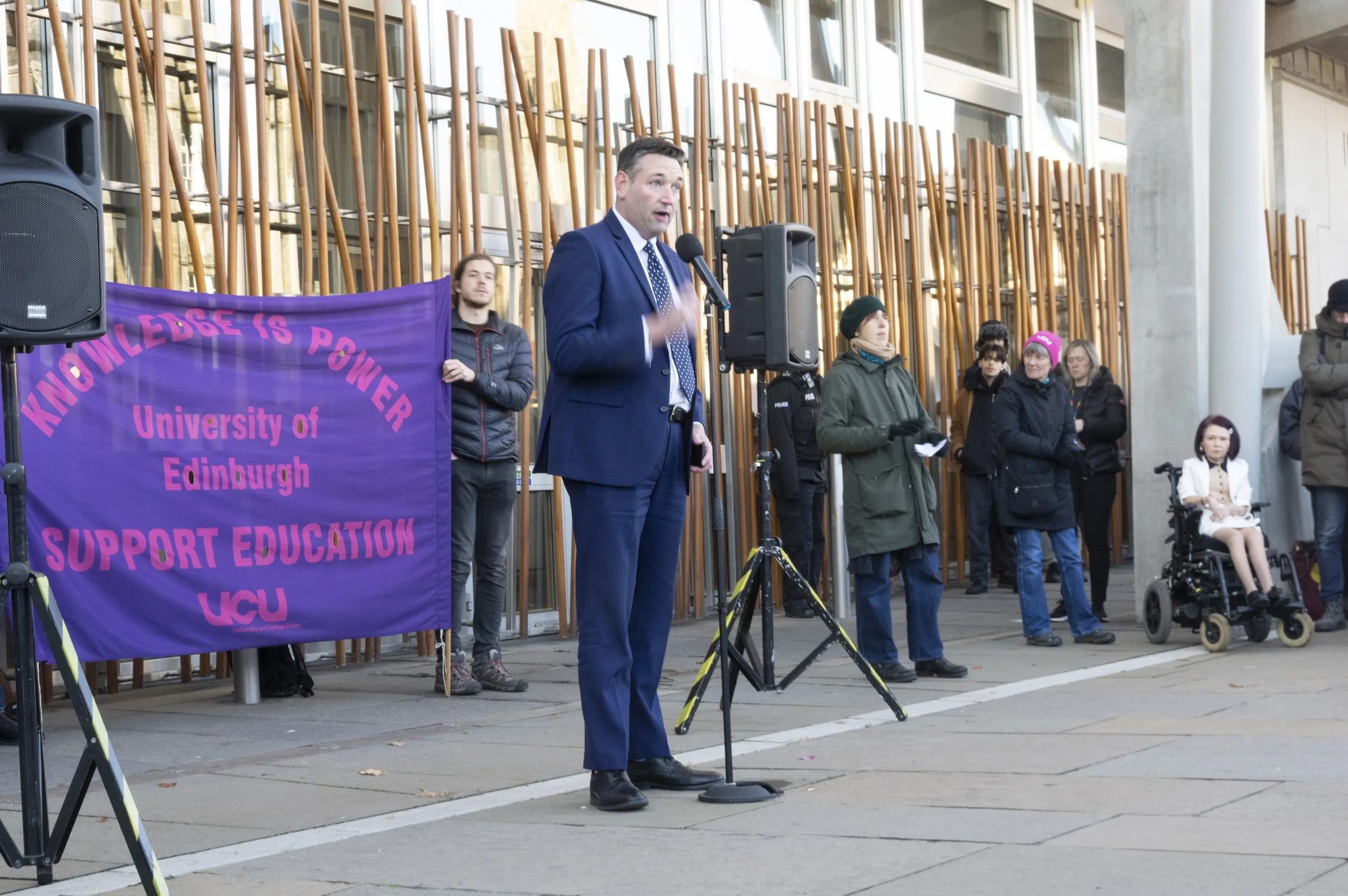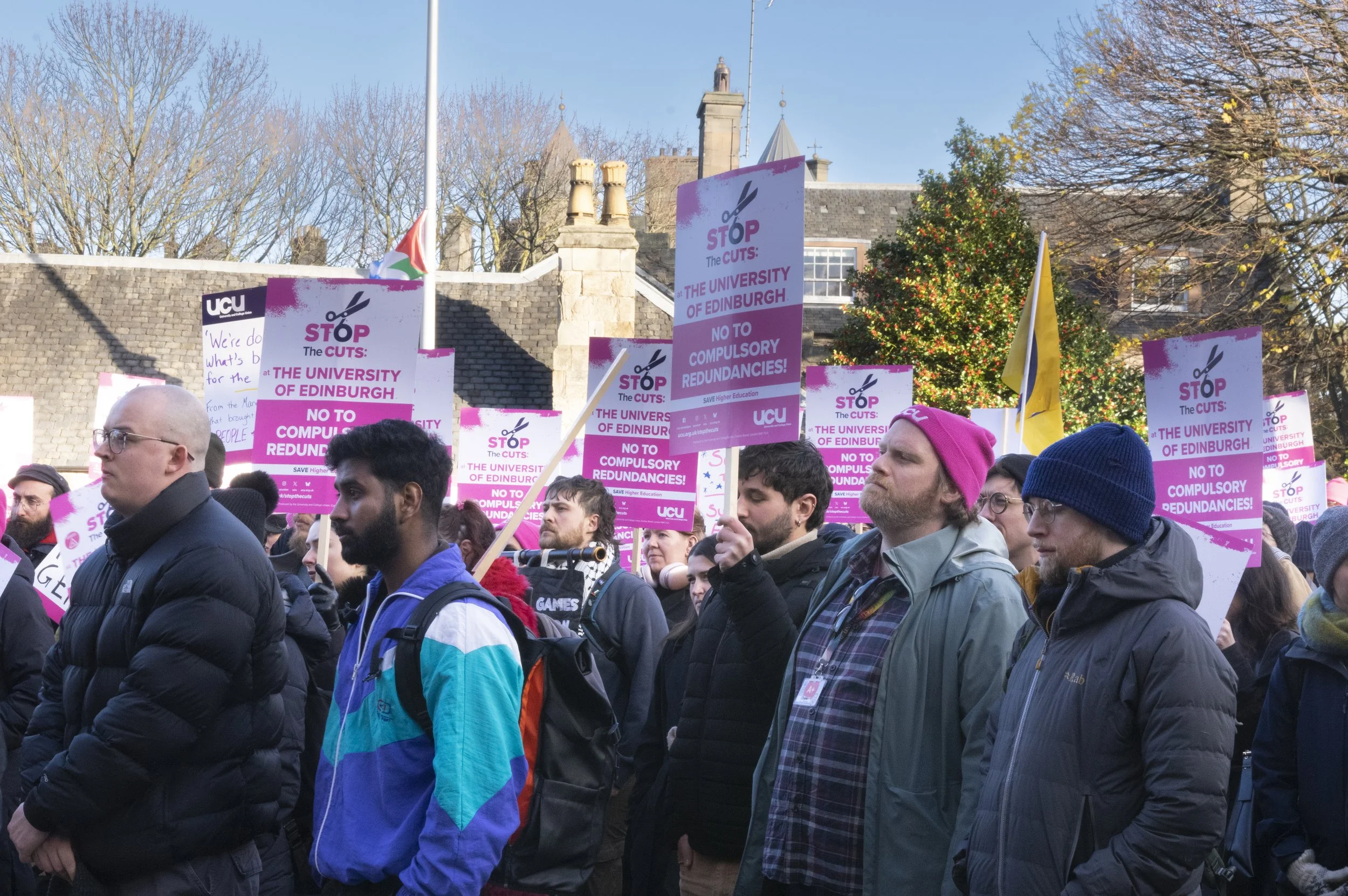Winning parliamentary support for our campaign against the cuts
Senior management’s target of £90 million cuts from staffing budgets could mean 1,800 redundancies – on top of the job losses already happening as fixed-term contracts are not renewed. This is a crisis, and it’s entirely unnecessary. The harms to staff losing their jobs, the health of remaining staff who are expected to do more with less, the student experience, the quality of research and teaching, the university’s reputation, and the economies of Edinburgh, the wider region and entire country are incalculable.
We need our political representatives to act to prevent these multiple harms.
We represent a considerable voter base in their constituencies, and with elections looming in May 2026, we have an opportunity to secure their support.
From now until the Scottish Parliament elections… we need members to keep lobbying MSPs!
To increase pressure on senior management to change course, we want every member of all three campus unions to email and phone their MSPs’ offices (constituency, and, ideally, regional list). We have encouraged students to do the same. Many of us have emailed before but, to make our situation a priority for MSPs, we need to not just email but call and, ideally, arrange a meeting (teams or in person).
MSPs receive hundreds of emails; it’s hard for our messages to cut through. Calls/meetings, however, really make a difference. Our lobbying has already resulted in several questions being asked in parliament and a promise from the Education, Children and Young People Committee to investigate Senior Management’s plans. We need to keep up the pressure, however, so don’t stop calling your MSP. We want to see every single MSP on our gallery of MSP support.
Find out who your MSP is and get their email addresses and phone numbers
Whomever you’re phoning, your call will likely be taken by a staff member or case worker in the MSP’s office. This is fine – they will pass the message on to the MSP. Ideally, arrange for a surgery meeting or a call-back, but even if you just leave a message, it will make a difference.



